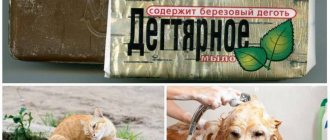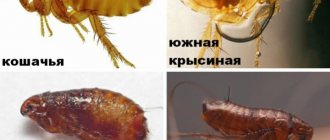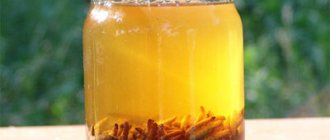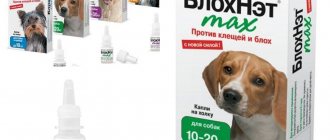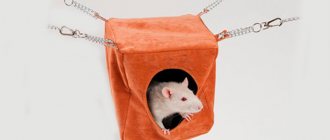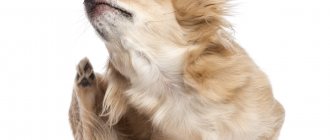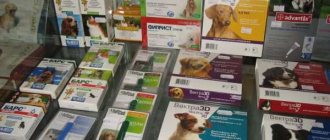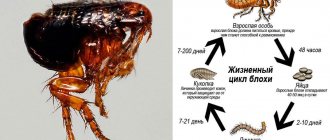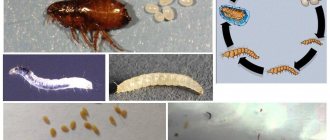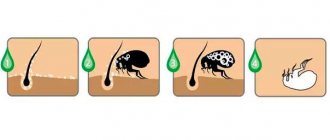Does it help?
Wormwood for fleas is deservedly considered one of the most effective remedies among its analogues. After all, even if we go back to antiquity, when this particular herb was used in the fight against evil spirits, not a single representative of humanity doubted its unshakable power. Wormwood helps not only against fleas - the smell of the plant scares rats, ants, flies and midges.
How to use?
Before using wormwood for fleas in an apartment or house, you should decide on the form of the product to be used. The component can be used fresh, in the form of tincture, decoction, or essential oil. Wormwood is effective against fleas in any form.
Wormwood tincture
Wormwood infusion against fleas can only be used to treat the fur of animals living in a house or apartment.
Insects are afraid of strong odors. This means that when using the tincture, fleas will run away not only from wormwood, but also from alcohol.
To prepare the product, follow the following procedure::
- Mix the main ingredient in equal parts with the additional one - pumpkin seeds. What does wormwood herb suitable for cooking look like? The plant must be collected in dry weather, pre-washed and dried (you can purchase ready-made dry herb at the pharmacy);
- add vodka to the plant with seeds, the amount of which should be three times the volume of leaves and seeds;
- move the container to a warm place, it will not be amiss if sunlight begins to fall on it;
- leave the composition for at least 7 days ;
- strain the tincture and use as directed.
Wormwood essential oil
You can also use wormwood essential oil for fleas.
The recipe for preparing the product is as follows:
- collect some stems, leaves and inflorescences of bitter grass;
- chop the raw materials with a knife and place them in a vessel, compacting them well;
- Fill the container with vegetable oil (preferably olive oil) so as to cover the ingredient;
- close the lid and shake well in your hands;
- hide the vessel with oil and herbs in a dark, cool place for 14 days;
- When the mixture turns green, it is ready - the container can be opened and strained through cheesecloth.
You can use the prepared oil by pouring it into saucers or lids and placing the vessels in places where parasites most often live and in areas where “uninvited guests” enter a house or apartment.
You can use the oil in another way: treat animal fur with it - the insects will be afraid of the smell and will leave the pets.
Wormwood decoction
An alternative remedy for treating animal hair and bathing pets that have fleas on their bodies is a decoction of wormwood. It is very easy to prepare at home.
To do this you need:
- prepare dried herb (the main component of the product), brew wormwood with water (boiling). When combining ingredients, it is worth maintaining the ratio: 400 ml of liquid per 20 g of dry component;
- leave the mixture covered for 40 minutes - it should cool slightly;
- strain the product using a sieve or gauze;
- Allow the broth to cool and only then use it for its intended purpose.
Using a fresh plant
It is also possible to use fresh wormwood in the fight against fleas. To do this, you just need to hang freshly picked bunches of grass, brooms, bouquets in the corners of the rooms, in the attic, in the barn, garage and other places where the largest concentration of insects was noticed. Fleas do not like the smell of wormwood and can smell it, even if the plant is hidden under a rug or carpet. The grass can also lie on the windowsill, bed, table, or in the ventilation holes.
If you use fresh wormwood to control insects, the tufts of grass should be changed periodically.
In what form can wormwood be used?
In the fight against blood-sucking insects, as a rule, wormwood grass is used in dry form, but also slightly dried.
Dry bunches do not lose their repellent properties, although fresh grass still contains a little more of them.
The following forms of wormwood have also proven themselves:
- Wormwood oil. It is used against fleas, poured into small glasses and lids, in order to then place them in places through which insects can enter the house. In addition, the fur of a pet is also treated with oil if the pet is already infected, and then the fleas quickly leave their four-legged owner;
- Wormwood decoction. It is mainly used as a means to combat fleas when it comes to pets. In this case, the decoction is added to the water while bathing the animal, rather than treated with it on the fur;
- Wormwood tincture for fleas. It is almost always used to process bird plumage, as well as animal fur. And although it is not known what exactly repels insects - the smell of grass or alcohol contained in the tincture, this does not matter much, the main thing is that it gives the same good result as a decoction.
Operating principle
The plant does not kill insects; it helps repel fleas due to its smell. The plant contains several different acids (succinic, malic, etc.). This also includes vitamins, essential oils, tanning components, and glycosides, which create an aroma that frightens insects.
For people, this smell does not seem dangerous; it reminds them of the aroma of freshly cut grass. But wormwood repels fleas - they run away.
Folk remedies for fleas in cats
To free your pet from suffering, you can use folk recipes.
The following will help rid your cat of parasites:
- Pine sawdust. It is necessary to pour sawdust onto the litter or place it in each room in neat bags. This will serve as a repellent and prevent insects from breeding.
- Cold is especially important in winter. Fleas are heat-loving insects; at low temperatures they die. There is an opinion that systematically airing rooms in winter will help get rid of parasites.
- Prepare powder from soda and salt. This mixture should be used to treat all carpets and cat litter. Leave the room closed for several hours. Then everything needs to be cleaned with a vacuum cleaner. You can also prepare a saline solution (200 g of salt is used for 8 liters of water). This solution is intended for bathing a cat. It is necessary to hold the animal's paws firmly and lower it into the container, leaving only the head outside. This procedure lasts no more than 3 minutes, then the cat needs to be rinsed with warm, clean water. The pet will be very resistant, so strength and patience will be needed.
- Tar soap. Soap not only kills parasites, but also acts as a healing and pain reliever. This option is considered the most effective, since tar kills not only adult insects, but also completely destroys larvae and eggs. The soap is considered natural, completely safe for animals and people. It is necessary to shake it in water until foam forms in order to rub it on the cat’s fur. After five minutes, the foam is washed off. The procedure is carried out until the insects are completely removed, most often three or four times are enough.
There are other options available after consulting with your veterinarian.
Let's watch an interesting video about how to remove fleas from your home using folk remedies:
How to handle pets?
A decoction of wormwood is best suited for treating animal fur.
The product should be at room temperature. The algorithm for processing pet fur is as follows:
- Apply the decoction drop by drop, you can spray the animal's fur, then rub the composition using your palms.
- If the pet's undercoat is very long or thick, then during the process it is necessary to spread it to the sides so that the product comes into contact with the animal's skin. There is no need to be afraid of the harmful effects of the plant: the decoction will not burn or cause irritation to the skin, and the bitter taste of the herb will not allow your pet to eat it.
- If the treatment is not carried out for preventive purposes, it is better to carry out all manipulations in the fresh air, since fleas will soon begin to immigrate.
Additionally, you can place fresh twigs or bunches of dried wormwood near the animal’s habitat and treat pet care items (brush, rug, toys, etc.).
Useful properties of wormwood
Common wormwood, or wormwood, is a perennial branched plant with a height of 50 to 150 cm and is widespread throughout Asia, North America, Europe and North Africa. It has a strong specific odor. Before collecting the plant, you can see what wormwood looks like in the photo.
In addition to its smell, Chernobyl differs from other field weeds by the presence of a number of medicinal properties: ascorbic acid, essential oils, carotene, tannins and others. But first of all, it was the smell of the plant that became a panacea for problems with fleas and other parasites.
Interesting!
Many insects have a sensitive sense of smell and cannot tolerate strong odors. And here bitter herb plays a major role in the fight against parasites, since wormwood affects fleas with its strong aroma.
Additional recommendations for poisoning fleas with wormwood
When using the product to poison parasitic organisms, it is worth considering a number of points:
- the product retains its effect only until its natural smell “goes away”. If you don’t change the tuft or process the animal’s fur again, the insects will return to their old ways;
- some pets may be allergic to the plant, so you should use the plant with caution, especially during initial processing;
- The herb exhibits the greatest effect in combination with other means of repelling harmful insects: gasoline, kerosene, vinegar solution, etc.;
- to improve the aromatic qualities of the product, you can combine it with cedar, fir, mint, eucalyptus;
- if they treat an apartment with dried wormwood, be sure to open all the windows and doors - this way the insects will have somewhere to run. Otherwise, the organisms will find refuge in cracks and corners and wait there until the smell subsides ;
- a cat or dog can be treated not only with a decoction, but also with oil - just apply a few drops of the product to the withers;
- if the owners of a house or apartment are preparing to exterminate living creatures, in order to ensure their own safety, it is necessary to apply a couple of drops of oil and rub it in the area of the ankles and feet;
It is not advisable to use wormwood as the only remedy against fleas - you must immediately use a chemical agent and only then begin treating the apartment and animals with plant-based components.
How to prepare and store wormwood
In order not to worry about where to get wormwood in winter, the plant needs to be prepared in advance. In the countryside, pet owners collect wormwood in the summer and early fall, tie it into large bunches and dry it in the open air. Afterwards, the wormwood is crushed and stored in glass or clay containers.
You can specifically go out of town and collect the grass yourself. It needs to be picked on a sunny day, after the morning dew has evaporated. Only healthy plants with strong stems and succulent, elastic leaves are suitable. It is better not to pick young grass that does not yet have flowers: it contains much lower concentrations of essential oils. The collected plant at home should be lightly rinsed with water, finely chopped and dried. Store in a tightly closed container.
City dwellers may not know where to get wormwood. Is it sold in pharmacies or should it be purchased on special websites? This question may arise for a person who has never encountered the procurement of medicinal plants. Fortunately, wormwood is a common plant and is sold in almost any pharmacy. Purchased herbs must be stored in unopened packages, otherwise the essential oils will quickly dissipate.
If you don’t want to prepare a tincture or oil, you can buy it at the pharmacy instead of the herb itself. The cost of 1 jar of tincture does not exceed 200 rubles, it is enough for 5-10 uses.

